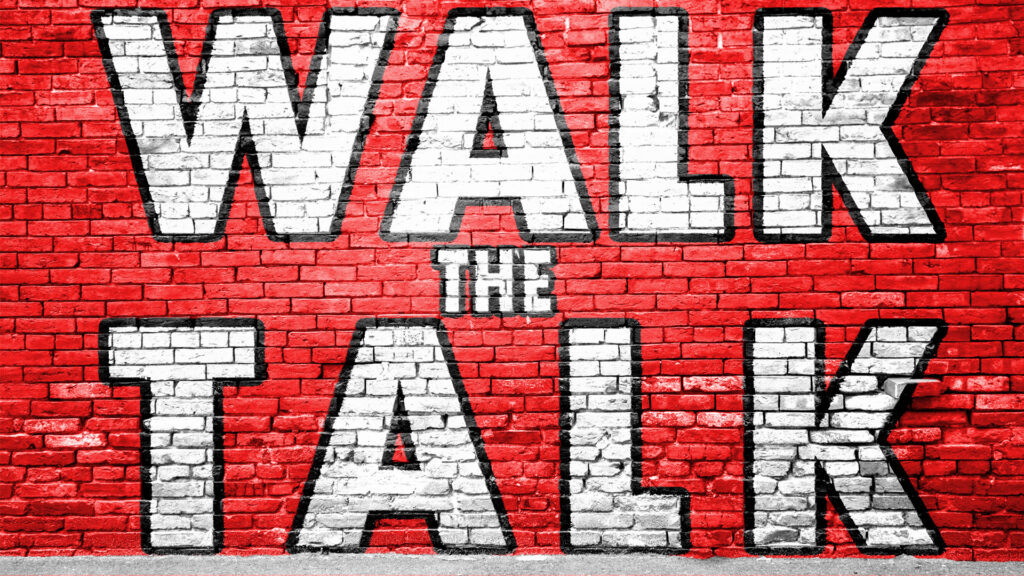When someone says “Walk the Talk”, what does that mean to you? For most individuals, it means backing your words with the action to accomplish whatever the goal/task you said you’d hit.
However, many of us have opened our mouths, talked a mean game, and never finished what we said we were going to. So, it might make more sense to ask ourselves: When you consider all the “goals” you have set for yourself in life, why have so many fallen by the wayside?
First, let’s look at the 3 pound lump of neurons, glial cells, neural stem cells, and blood vessels we call our brain. At its core, the brain’s primary function is self-preservation. Once it knows you have everything in place to live, then you can accomplish everything else…
What can happen when the brain finds itself in a new situation where it does not know the outcome, is it can assume the worst-case scenario for the outcome. Our brain does not like bad so it will find ways to avoid it.
This self-preservation wiring makes “thinking” about achieving a goal difficult. We must assign a meaning that will move the brain from “new is bad” to “this is bad and so I need to change it”. Famed psychologist Louis Cozolino, said it best: “thinking serves at the pleasure of emotion”. It is emotions that drive behavior and it’s our behavior that drives outcomes. The right emotion/meaning drives good outcomes. The wrong emotion/meaning will drive bad outcomes.
So how do we resolve this? My first suggestion might seem counterintuitive…at a personal level.
- Do NOT share your goals with others.
The more committed to your goals, the more secretive you should be about them. Dr. Marwa Azab posits that we must close the gap between intention (thinking about it) and implementation (finding meaning and doing it). Her research shows that when we publicize our goal intentions and others acknowledge the awesomeness of such “potential” changes, we get a dopamine reward all at once. The more others admire our goal, the more dopamine we get, so the less likely we are to implement the actions needed to reach those goals. Instead of getting the dopamine from achieving the goal, we get it from others’ admiration of our goals…before we achieve it.
Now, let’s look at walk the talk as it relates to you, your teams, and your organization.
In their 2015 survey of 2200 executives in over 900 companies, McKinsey & Company identified what good implementers do differently organizationally than other companies. “The most crucial factors when it comes to success or failure, according to survey respondents, are organization-wide ownership of and commitment to change, prioritization, and sufficient resources.”
As you can see, the requirements to successfully implement any kind of change is not complicated:
So…
Next time you have a goal that you or your team are looking to hit:
- Identify what this means to you
- Think through what you need for success
- Plan each step and be accountable for achieving them
- Celebrate with others AFTER you have achieved your goals
Simple…really!





